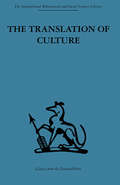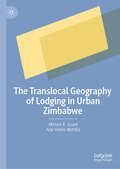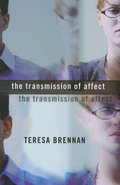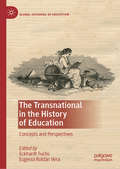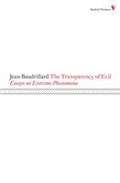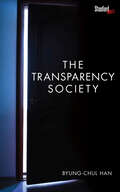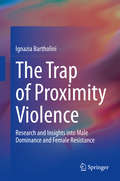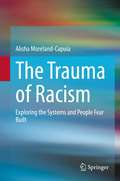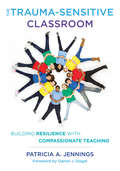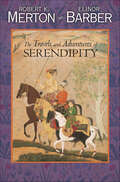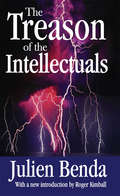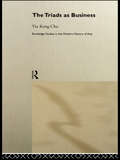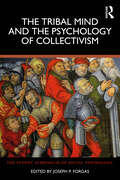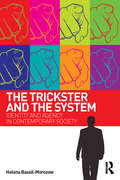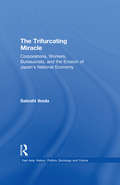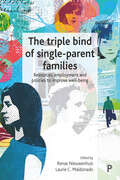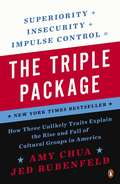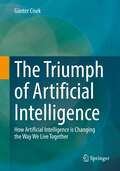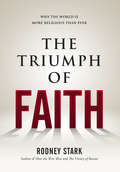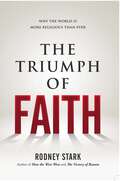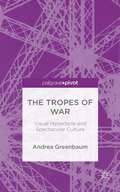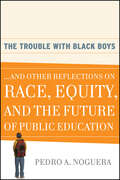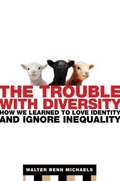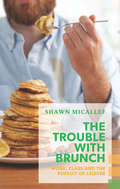- Table View
- List View
The Translation of Culture: Essays to E E Evans-Pritchard (International Behavioural And Social Sciences Ser. #Vol. 2)
by T. O. BeidelmanTavistock Press was established as a co-operative venture between the Tavistock Institute and Routledge & Kegan Paul (RKP) in the 1950s to produce a series of major contributions across the social sciences. This volume is part of a 2001 reissue of a selection of those important works which have since gone out of print, or are difficult to locate. Published by Routledge, 112 volumes in total are being brought together under the name The International Behavioural and Social Sciences Library: Classics from the Tavistock Press. Reproduced here in facsimile, this volume was originally published in 1971 and is available individually. The collection is also available in a number of themed mini-sets of between 5 and 13 volumes, or as a complete collection.
The Translocal Geography of Lodging in Urban Zimbabwe
by Miriam R. Grant Arja Vainio-MattilaThis book will argue that lodging is a hugely ignored, largely invisible but critical sector of housing provision and economic contributor of burgeoning African cities. It further connects the rural and the urban, challenging traditional definitions of locationally-bound communities. Lodgers create micro, local and translocal communities and the lodging system offers livelihood strategies. Rather than engage in the dominant portrayal of rural-urban as binary, dichotomous space, we maintain that lodging represents and supports the translocal community and relational networks of the extended family as it seeks to maximize access to resources.
The Transmission of Affect
by Teresa BrennanThe idea that one can soak up someone else's depression or anxiety or sense the tension in a room is familiar. Indeed, phrases that capture this notion abound in the popular vernacular: "negative energy," "dumping," "you could cut the tension with a knife." The Transmission of Affect deals with the belief that the emotions and energies of one person or group can be absorbed by or can enter directly into another. The ability to borrow or share states of mind, once historically and culturally assumed, is now pathologized, as Teresa Brennan shows in relation to affective transfer in psychiatric clinics and the prevalence of psychogenic illness in contemporary life. To neglect the mechanism by which affect is transmitted, the author claims, has serious consequences for science and medical research. Brennan's theory of affect is based on constant communication between individuals and their physical and social environments. Her important book details the relationships among affect, energy, and "new maladies of the soul," including attention deficit disorder, chronic fatigue syndrome, codependency, and fibromyalgia.
The Transnational in the History of Education: Concepts and Perspectives (Global Histories of Education)
by Eckhardt Fuchs Eugenia Roldán VeraThis edited volume reflects on how the “transnational” features in education as well as policies and practices are conceived of as mobile and connected beyond the local. Like “globalization,” the “transnational” is much more than a static reality of the modern world; it has become a mode of observation and self-reflection that informs education research, history, and policy in many world regions. This book examines the sociocultural project that the “transnational turn” evident in historical scholarship of the last few decades represents, and how a “transnational history” shapes how historians construct their objects of study. It does so from a multinational perspective, yet with a view of the different layers of historical meanings associated with the concept of the transnational.
The Transparency Of Evil: Essays On Extreme Phenomena (Radical Thinkers)
by Jean Baudrillard James BenedictIn this, his most important collection of essays since Le systeme des objets, Jean Baudrillard contemplates Western culture “after the orgy”—the orgy, that is, of the revolutions of the 1960s. The sexual revolution has led, he argues, not to sexual liberation but to a reign of transvestism, to a confusion of the categories of man and woman—to the “androgenous and Frankenstein appeal of a Michael Jackson.” The revolution in art has led to a “transaesthetic realm of indifference.” The cybernetic revolution has blurred the distinction between man and machine, while the political revolution has led to a ‘transpolitics’ that merely simulates old political forms. Such are the points of Baudrillard’s compass as he steers his way through the mental landscape of this febrile fin de siecle.
The Transparency Society
by translated by Erik Butler Byung-Chul HanTransparency is the order of the day. It is a term, a slogan, that dominates public discourse about corruption and freedom of information. Considered crucial to democracy, it touches our political and economic lives as well as our private lives. Anyone can obtain information about anything. Everything--and everyone--has become transparent: unveiled or exposed by the apparatuses that exert a kind of collective control over the post-capitalist world. For transparency has a dark side that, ironically, it has everything to do with a lack of mystery, shadow, and nuance. Behind the apparent accessibility of knowledge lies the disappearance of privacy, homogenization, and the collapse of trust. The anxiety to accumulate ever more information does not necessarily produce more knowledge or faith. Technology creates the illusion of total containment and constant monitoring of information, but what we lack is adequate interpretation of the information. In this manifesto, Byung-Chul Han denounces transparency as a false ideal, the strongest and most pernicious of our contemporary mythologies.
The Trap of Proximity Violence: Research and Insights into Male Dominance and Female Resistance
by Ignazia BartholiniThis book aims at shifting the emphasis from a general vision of gender-based violence to a more opaque, yet equally destructive one, that related to "proximity violence".The first type of violence is exercised in multiple situations and in the generality of relationships experienced by people involving others who are both strangers to and intimate with each other. Proximity violence provides and includes a fiduciary kind of "proximity", of "dependent intimacy", where the trust that the victim places in the other (her tormentor) favours the exercise of violence itself, allowing it to take place, thus making it practically imperceptible when not actually normal, in extreme cases.In turn, this confidence is comparable to "a veil of Maja" which, in conditions of vulnerability typical of victims, attenuates the consequences of the violence undergone or the omens of what becomes violent action.The conceptual triad: proximity violence, vulnerability, resistance-resilience is explored here, in the three main chapters and in the details aimed at identifying, in the final chapter, the mutual interconnections. This book will be of particular interest and use to undergraduate and graduate students of sociology and gender studies
The Trauma of Racism: Exploring the Systems and People Fear Built
by Alisha Moreland-CapuiaThis book provides in-depth analysis of the historical, philosophical, anthropological, political and neurobiological reinforcements of fear and the role of fear-on-fear interactions in the construction and maintenance of systems. This text will help systems appreciate the profound, pervasive and deleterious role fear has played in the establishment of laws, policies and practices, and explore what systems can do to reduce fear and prioritize safety and healing. Right now we are dealing with hard truths: human suffering runs deep and is universal; trauma is ubiquitous and widespread; racism is real and has profound psychological, physical, political, social and economic implications; and the world is hurting and needs healing. Many are curious about where and when healing will commence, who will facilitate it and what it will look and feel like. Healing comes in this order: safety, truth and then reconciliation. When we know better, we can (or should) certainly do better. This book offers a framework for how to effectively begin to deconstruct systemic fear, prioritize safety, reduce needless suffering and move toward optimal healing and sustained change.
The Trauma-Sensitive Classroom: Building Resilience With Compassionate Teaching
by Patricia A. Jennings<P><P>From the author of Mindfulness for Teachers, a guide to supporting trauma-exposed students. <P><P> Fully half the students in U.S. schools have experienced trauma, violence, or chronic stress. In the face of this epidemic, it falls increasingly to teachers to provide the adult support these students need to function in school. But most educators have received little training to prepare them for this role. <P><P> In her new book, Tish Jennings—an internationally recognized leader in the field of social and emotional learning—shares research and experiential knowledge about the practices that support students' healing, build their resilience, and foster compassion in the classroom. In Part I, Jennings describes the effects of trauma on body and mind, and how to recognize them in students' behavior. In Part II, she introduces the trauma-sensitive practices she has implemented in her work with schools. And in Part III, she connects the dots between mindfulness, compassion, and resilience. Each chapter contains easy-to-use, practical activities to hone the skills needed to create a compassionate learning environment.
The Travels and Adventures of Serendipity: A Study in Sociological Semantics and the Sociology of Science
by Robert K. Merton Elinor BarberFrom the names of cruise lines and bookstores to an Australian ranch and a nudist camp outside of Atlanta, the word serendipity--that happy blend of wisdom and luck by which something is discovered not quite by accident--is today ubiquitous. This book traces the word's eventful history from its 1754 coinage into the twentieth century--chronicling along the way much of what we now call the natural and social sciences. The book charts where the term went, with whom it resided, and how it fared. We cross oceans and academic specialties and meet those people, both famous and now obscure, who have used and abused serendipity. We encounter a linguistic sage, walk down the illustrious halls of the Harvard Medical School, attend the (serendipitous) birth of penicillin, and meet someone who "manages serendipity" for the U.S. Navy. The story of serendipity is fascinating; that of The Travels and Adventures of Serendipity, equally so. Written in the 1950s by already-eminent sociologist Robert Merton and Elinor Barber, the book--though occasionally and most tantalizingly cited--was intentionally never published. This is all the more curious because it so remarkably anticipated subsequent battles over research and funding--many of which centered on the role of serendipity in science. Finally, shortly after his ninety-first birthday, following Barber's death and preceding his own by but a little, Merton agreed to expand and publish this major work. Beautifully written, the book is permeated by the prodigious intellectual curiosity and generosity that characterized Merton's influential On the Shoulders of Giants. Absolutely entertaining as the history of a word, the book is also tremendously important to all who value the miracle of intellectual discovery. It represents Merton's lifelong protest against that rhetoric of science that defines discovery as anything other than a messy blend of inspiration, perspiration, error, and happy chance--anything other than serendipity.
The Treason of the Intellectuals
by Roger Kimball Julien BendaJulien Benda's classic study of 1920s Europe resonates today. The "treason of the intellectuals" is a phrase that evokes much but is inherently ambiguous. The book bearing this title is well known but little understood. This edition is introduced by Roger Kimball. From the time of the pre-Socratics, intellectuals were a breed apart. They were non-materialistic knowledge-seekers who believed in a universal humanism and represented a cornerstone of civilized society. According to Benda, this all began to change in the early twentieth century. In Europe in the 1920s, intellectuals began abandoning their attachment to traditional philosophical and scholarly ideals, and instead glorified particularisms and moral relativism. The "treason" of which Benda writes is the betrayal by the intellectuals of their unique vocation. He criticizes European intellectuals for allowing political commitment to insinuate itself into their understanding of the intellectual vocation, ushering the world into "the age of the intellectual organization of political hatreds." From the savage flowering of ethnic and religious hatreds in the Middle East and throughout Europe today to the mendacious demand for political correctness and multiculturalism on college campuses everywhere in the West, the treason of the intellectuals continues to play out its unedifying drama.
The Triads as Business (Routledge Studies in the Modern History of Asia #No.6)
by Yiu-kong ChuThere is no doubt that the triads have become recognized as a sophisticated and international criminal force and, following the handover of Hong Kong to China, there have been increasing fears that their influence will spread to the West through emigration. This book investigates the reality behind the myth with a study of the Hong Kong triads, generally regarded as the headquarters of triad societies throughout the world. Yiu Kong Chu examines their origins, their organized extortion from legitimate businesses large and small, and their more recent moves into illegal activities such as drug trafficking, human smuggling and gambling.Contrary to the popular belief that Hong Kong triads are replacing the Italian Mafia as the most powerful criminal organization in the world, this book argues that Hong Kong triads may be declining, as other ethnic Chinese crime gangs emerge as powerful crime groups in Western societies.Based on interviews with ex triad members and victims of the triads, police from Hong Kong, mainland China and Europe, as well as documentary evidence The Triads as Business gives a vivid and compelling picture of the triads as part of a wider society.
The Trials of Academe: The New Era of Campus Litigation
by Amy GajdaOnce upon a time, virtually no one in the academy thought to sue over campus disputes, and, if they dared, judges bounced the case on grounds that it was no business of the courts. Tenure decisions, grading curves, course content, and committee assignments were the stuff of faculty meetings, not lawsuits. Not so today. As Amy Gajda shows in this witty yet troubling book, litigation is now common on campus, and perhaps even more commonly feared. Professors sue each other for defamation based on assertions in research articles or tenure review letters; students sue professors for breach of contract when an F prevents them from graduating; professors threaten to sue students for unfairly criticizing their teaching. Gajda’s lively account introduces the new duo driving the changes: the litigious academic who sees academic prerogative as a matter of legal entitlement and the skeptical judge who is increasingly willing to set aside decades of academic deference to pronounce campus rights and responsibilities. This turn to the courts is changing campus life, eroding traditional notions of academic autonomy and confidentiality, and encouraging courts to micromanage course content, admissions standards, exam policies, graduation requirements, and peer review. This book explores the origins and causes of the litigation trend, its implications for academic freedom, and what lawyers, judges, and academics themselves can do to limit the potential damage.
The Tribal Mind and the Psychology of Collectivism (Sydney Symposium of Social Psychology)
by Joseph P. ForgasTribalism is a key evolutionary feature of humans, and the recent growth in tribal polarisation presents a serious challenge to our highly individualistic civilisation. This fascinating book examines the psychological origins and consequences of tribalism both in our private and in our public lives.The chapters explore how social, evolutionary, biological, and cognitive factors shape our tribal habits, featuring contributions from eminent international researchers. The chapters review the nature and origins of tribalism, the psychological mechanisms promoting tribalism, how tribal narratives can distort rationality and perceptions of reality, and the role of tribalism in politics and public affairs. The contributions investigate how insecurity, the search for meaning and attachment, victimhood, grievance, and cognitive shortcomings can facilitate tribal bonding and how such groups once formed can foster conflict, hatred, and irrational behaviours. The book suggests that the survival of our extremely successful civilisation based on the enlightenment values of liberty and individualism may well depend on our ability to understand and manage the human evolutionary propensity for tribalism.The book will be of great interest to students and researchers in psychology, sociology, and other disciplines of behavioural and social sciences, as well as all readers who seek to understand one of the most intriguing issues that shape human social life.
The Trickster and the System: Identity and agency in contemporary society
by Helena Bassil-MorozowFor centuries, the trickster has been used in various narratives, including mythological, literary and cinematic, to convey the idea of agency, rebellion and, often turbulent, progress. In The Trickster and the System: Identity and Agency in Contemporary Society, Helena Bassil-Morozow shows how the trickster can be seen as a metaphor to describe the psycho-anthropological concept of change, an impulse that challenges the existing order of things, a progressive force that is a-structural and anti-structural in its nature. The book is about being able to see things from an unusual, even ‘odd’, perspective, which does not coincide with the homogenous normality of the mass, or the social system, or a political ideology, or some other kind of authority. The Trickster and the System offers an analytical paradigm which can be used to examine relationships between tricksters and systems, change and stability, in a wide range of social, political and cultural contexts. It covers a range of systems, describes different types of tricksters and discusses possible conflicts, tensions and dialogues between the two opposing sides. One of the central ideas of the book is that social systems use shame as a tool to control and manage all kinds of tricksters – individuality, agency, creativity, spontaneity, innovation and initiative, to name but a few. The author argues that any society that neglects its tricksters (agents of change), ends up suffering from decay, stagnation – or even mass hysterical outbursts. The Trickster and the System: Identity and Agency in Contemporary Society provides a fresh perspective on the trickster figure in a variety of cultural contexts. It covers a range of psychological, cultural, social and political phenomena, from personal issues to the highest level of society’s functioning: self-esteem and shame, lifestyle and relationships, creativity and self-expression, media, advertising, economy, political ideology and, most importantly, human identity and authenticity. The book is essential reading for scholars in the areas of psychoanalysis, analytical psychology, myth, cultural and media studies, narrative analysis, cultural anthropology, as well as anyone interested in critical issues in contemporary culture. Helena Bassil-Morozow is a cultural philosopher, film scholar and academic writer whose many publications include Tim Burton: The Monster and the Crowd (Routledge, 2010) and The Trickster in Contemporary Film (Routledge, 2011). Helena is currently working on another Routledge project, Jungian Film Studies: the Essential Guide (co-authored with Luke Hockley). Her principal academic affiliation is the University of Bedfordshire, Faculty of Creative Arts, Technologies & Science.
The Trifurcating Miracle: Corporations, Workers, Bureaucrats, and the Erosion of Japan's National Economy (East Asia: History, Politics, Sociology and Culture)
by Satoshi IkedaFirst published in 2002. Routledge is an imprint of Taylor & Francis, an informa company.
The Triple Bind of Single-Parent Families: Resources, Employment and Policies to Improve Wellbeing
by Rense Nieuwenhuis Laurie C. MaldonadoAvailable Open Access under CC-BY-NC licence. Single parents face a triple bind of inadequate resources, employment, and policies, which in combination further complicate their lives. This book - multi-disciplinary and comparative in design - shows evidence from over 40 countries, along with detailed case studies of Sweden, Iceland, Scotland, and the UK. It covers aspects of well-being that include poverty, good quality jobs, the middle class, wealth, health, children’s development and performance in school, and reflects on social justice. Leading international scholars challenge our current understanding of what works and draw policy lessons on how to improve the well-being of single parents and their children.
The Triple Package: How Three Unlikely Traits Explain the Rise and Fall of Cultural Groups in America
by Amy Chua"That certain groups do much better in America than others -- as measured by income, occupational status, test scores, and so on -- is difficult to talk about. In large part this is because the topic feels racially charged. The irony is that the facts actually debunk racial stereotypes. There are black and Hispanic subgroups in the United States far outperforming many white and Asian subgroups. Moreover, there's a demonstrable arc to group success -- in immigrant groups, it typically dissipates by the third generation -- puncturing the notion of innate group differences and undermining the whole concept of 'model minorities. '" Mormons have recently risen to astonishing business success. Cubans in Miami climbed from poverty to prosperity in a generation. Nigerians earn doctorates at stunningly high rates. Indian and Chinese Americans have much higher incomes than other Americans; Jews may have the highest of all. Why do some groups rise? Drawing on groundbreaking original research and startling statistics, The Triple Package uncovers the secret to their success. A superiority complex, insecurity, impulse control -- these are the elements of the Triple Package, the rare and potent cultural constellation that drives disproportionate group success. The Triple Package is open to anyone. America itself was once a Triple Package culture. It's been losing that edge for a long time now. Even as headlines proclaim the death of upward mobility in America, the truth is that the oldfashioned American Dream is very much alive, but some groups have a cultural edge, which enables them to take advantage of opportunity far more than others. * Americans are taught that everyone is equal, that no group is superior to another. But remarkably, all of America's most successful groups believe (even if they don't say so aloud) that they're exceptional, chosen, superior in some way. * Americans are taught that self-esteem -- feeling good about yourself -- is the key to a successful life. But in all of America's most successful groups, people tend to feel insecure, inadequate, that they have to prove themselves. * America today spreads a message of immediate gratification, living for the moment. But all of America¿s most successful groups cultivate heightened discipline and impulse control. But the Triple Package has a dark underside too. Each of its elements carries distinctive pathologies; when taken to an extreme, they can have truly toxic effects. Should people strive for the Triple Package? Should America? Ultimately, the authors conclude that the Triple Package is a ladder that should be climbed and then kicked away, drawing on its power but breaking free from its constraints. Provocative and profound, The Triple Package will transform the way we think about success and achievement.
The Triumph of Artificial Intelligence: How Artificial Intelligence is Changing the Way We Live Together
by Günter CisekThe book demonstrates to readers interested in social life in an understandable way how AI works and how it will dramatically change all areas of life. From the history of AI to its techniques and its diverse fields of application to its ethical-philosophical implications, all relevant aspects are presented in detail. The author does not remain descriptive, but also takes a critical stance on AI development in clear words. For the reader, the explanations are designed as a professional support corset, in order to be able to act as a knowledgeable counterpart to the AI experts. The last two chapters take the reader into the future of life with super AI. With daring scenarios, the author alerts the reader in an enjoyable way to the breathtaking and socially highly explosive perspectives associated with AI and the ethical and philosophical questions that arise from it.This book is a translation of the original German 1st edition Machtwechsel der Intelligenzen by Günter Cisek, published by Springer Fachmedien Wiesbaden GmbH, part of Springer Nature in 2021. The translation was done with the help of artificial intelligence (machine translation by the service DeepL.com). A subsequent human revision was done primarily in terms of content, so that the book will read stylistically differently from a conventional translation. Springer Nature works continuously to further the development of tools for the production of books and on the related technologies to support the authors.
The Triumph of Faith
by Rodney StarkTheTriumph of Faith explodes the myth that people around the world are abandoning religion. Stark marshals an incredible amount of data--surveys of more than a million people in 163 nations--to paint the full picture that both scholars and popular commentators have missed. He explains why the astonishing growth of religion is happening, and what it means for our future. Stark's lively, eye-opening book is full of insights that defy the conventional wisdom. He reveals: * Why Islam is not overtaking Christianity * 81 percent of people around the world claim to belong to an organized religious faith * Half of the people around the world attended a worship service in the past week * Despite all the attention paid to the "New Atheists," atheists remain few, anywhere * Latin America has never been so Catholic--and that's because there are now so many Protestants there * Of all the great world religions, only Buddhism may not be growing As Stark shows, secularists have been predicting the imminent demise of religion for centuries. It is their unshakeable faith in secularization that may be the most "irrational" of all.
The Triumph of Faith: Why the World Is More Religious than Ever
by Rodney Stark"God is not dead." —Wall Street Journal Believe it or not, the world is more religious than ever before. Everyone seems to take it for granted that the world is getting more secular—that faith is doomed by modernity. Scientists, secularists, and atheists applaud the change; religious believers lament it. But here's the thing: they're all wrong—and the bestselling author and influential scholar of religion Rodney Stark has the numbers to prove it.The Triumph of Faith explodes the myth that people around the world are abandoning religion. Stark marshals an unprecedented body of data—surveys of more than a million people in 163 nations—to paint the full picture that both scholars and popular commentators have missed. And he explains why the astonishing growth of religion is happening and what it means for our future. Stark's bracing book is full of insights that defy the conventional wisdom. With vigorous prose he reveals: •Why claims about Millennials' lack of religion are overblown and historically ignorant •Why Islam is NOT overtaking Christianity •How 4 out of 5 people worldwide now belong to an organized religion •How 50 percent have attended a worship service in the past week •Why much-ballyhooed studies from the Pew Research Center and others get the religious landscape wrong •Why atheists remain few, anywhere—despite all the talk of the "New Atheism" As Stark shows, secularists have been predicting the imminent demise of religion for centuries. It is their unshakable faith in secularization that may be the most "irrational" of all beliefs. As the author of How the West Won, The Victory of Reason, and many other bestselling works, Rodney Stark has a richly deserved reputation for writing page-turning, myth-busting books. He is also a groundbreaking scholar who has so reshaped the social scientific study of religion that his work has become the basis of a "new paradigm." Stark puts all those talents on full display in The Triumph of Faith.This book will change how you see both religion and the forces of secularization.
The Trouble With Black Boys
by Pedro A. NogueraFor many years to come, race will continue to be a source of controversy and conflict in American society. For many of us it will continue to shape where we live, pray, go to school, and socialize. We cannot simply wish away the existence of race or racism, but we can take steps to lessen the ways in which the categories trap and confine us. Educators, who should be committed to helping young people realize their intellectual potential as they make their way toward adulthood, have a responsibility to help them find ways to expand identities related to race so that they can experience the fullest possibility of all that they may become. In this brutally honest--yet ultimately hopeful-- book Pedro Noguera examines the many facets of race in schools and society and reveals what it will take to improve outcomes for all students. From achievement gaps to immigration, Noguera offers a rich and compelling picture of a complex issue that affects all of us.
The Trouble With Diversity: How We Learned to Love Identity and Ignore Inequality
by Walter Benn MichaelsA brilliant assault on our obsession with every difference except the one that really matters - the difference between rich and poor If there's one thing Americans agree on, it's the value of diversity. Our corporations vie for slots in the Diversity Top 50, our universities brag about minority recruiting, and every month is Somebody's History Month. But in this provocative new book, Walter Benn Michaels argues that our enthusiastic celebration of "difference" masks our neglect of America's vast and growing economic divide. Affirmative action in schools has not made them more open, it's just guaranteed that the rich kidscome in the appropriate colors. Diversity training in the workplace has not raised anybody's salary (except maybe the diversity trainers') but it has guaranteed that when your job is outsourced, your culture will be treated with respect. With lacerating prose and exhilarating wit, Michaels takes on the many manifestations of our devotion to diversity, from companies apologizing for slavery, to a college president explaining why there aren't more women math professors, to the codes of conduct in the new "humane corporations. " Looking at the books we read, the TV shows we watch, and the lawsuits we bring, Michaels shows that diversity has become everyone's sacred cow precisely because it offers a false vision of social justice, one that conveniently costs us nothing. The Trouble with Diversity urges us to start thinking about real justice, about equality instead of diversity. Attacking both the right and the left, it will be the most controversial political book of the year.
The Trouble with Brunch: Work, Class and the Pursuit of Leisure (Exploded Views)
by Shawn MicallefOne of The Globe and Mail's Globe 100: Best Books of 2014 Every weekend, in cities around the world, bleary-eyed diners wait in line to be served overpriced, increasingly outré food by hungover waitstaff. For some, the ritual we call brunch is a beloved pastime; for others, a bedeviling waste of time. But what does its popularity say about shifting attitudes towards social status and leisure? In some ways, brunch andother forms of conspicuous consumption have blinded us to ever-more-precarious employment conditions. For award-winning writer and urbanist Shawn Micallef, brunch is a way to look more closely at the nature of work itself and a catalyst for solidarity among the so-called creative class. Drawing on theories from Thorstein Veblen to Richard Florida, Micallef traces his own journey from the rust belt to a cosmopolitan city where the evolving middle class he joined was obliviousto its own instability and insularity. The Trouble with Brunch is a provocative analysis of foodie obsession and status anxiety, but it's also a call to reset our class consciousness. The real trouble with brunch isn't so much bad service and outsized portions of bacon, it's that brunch could be so much more. 'At the crux of it, Micallef's issue with brunch is a lack of self-awareness, and his book is essentially a call to arms to consider the implications of one's actions, even for something as innocuous as meeting friends for eggs and mimosas.' – Bookslut Praise for Shawn Micallef: ‘As Toronto grows into a more mature, more compelling city, a new group of non-academic, street-smart urbanists has emerged to appreciate it – with-it young writers, architects and men and women about town who love big cities and see things in Toronto that most of usmiss. Shawn Micallef is one of the sharpest of this sharp-eyed breed.’ – Globe and Mail ‘A smart and intimate guide to the city that makes you feel like an insider from start to finish.’ – Douglas Coupland [on Stroll]
